Fantastically quotable scientists on physics:
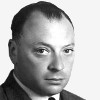 Physics is very muddled again at the moment; it is much too hard for me anyway, and I wish I were a movie comedian or something like that and had never heard anything about physics!
Physics is very muddled again at the moment; it is much too hard for me anyway, and I wish I were a movie comedian or something like that and had never heard anything about physics!
WOLFGANG PAULI, 1900 – 1958
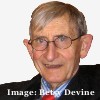 Physics is littered with the corpses of dead unified field theories.
Physics is littered with the corpses of dead unified field theories.
FREEMAN DYSON, B. 1923
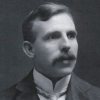 All of physics is either impossible or trivial. It is impossible until you understand it, and then it becomes trivial.
All of physics is either impossible or trivial. It is impossible until you understand it, and then it becomes trivial.
ERNEST RUTHERFORD, 1871 TO 1937
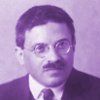 No two electrons in the same state? That is why atoms are so unnecessarily big, and why metal and stone are so bulky. (Explaining that atoms are as large as they are because of Wolfgang Pauli’s Principle.)
No two electrons in the same state? That is why atoms are so unnecessarily big, and why metal and stone are so bulky. (Explaining that atoms are as large as they are because of Wolfgang Pauli’s Principle.)
PAUL EHRENFEST, 1880 – 1933
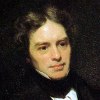 The condition of matter I have dignified by the term Electronic, THE ELECTRONIC STATE. What do you think of that? Am I not a bold man, ignorant as I am, to coin words?
The condition of matter I have dignified by the term Electronic, THE ELECTRONIC STATE. What do you think of that? Am I not a bold man, ignorant as I am, to coin words?
MICHAEL FARADAY, 1791 – 1867
 We cannot define anything precisely! If we attempt to, we get into that paralysis of thought that comes to philosophers, who sit opposite each other, one saying to the other, ‘You don’t know what you are talking about!’ The second one says ‘What do you mean by know? What do you mean by talking? What do you mean by you?’, and so on.
We cannot define anything precisely! If we attempt to, we get into that paralysis of thought that comes to philosophers, who sit opposite each other, one saying to the other, ‘You don’t know what you are talking about!’ The second one says ‘What do you mean by know? What do you mean by talking? What do you mean by you?’, and so on.
RICHARD FEYNMAN, 1918 TO 1988
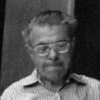 There are many ways of knocking electrons out of atoms. The simplest is to rub two surfaces together.
There are many ways of knocking electrons out of atoms. The simplest is to rub two surfaces together.
FRED HOYLE, 1915 TO 2001
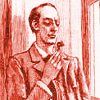 We were a polite society and I expected to lead a quiet life teaching mechanics and listening to my senior colleagues gently but obliquely poking fun at one another. This dream of somnolent peace vanished very quickly when (Ernest) Rutherford came to Cambridge. Rutherford was the only person I have met who immediately impressed me as a great man. He was a big man and made a big noise and he seemed to enjoy every minute of his life. I remember that when transatlantic broadcasting first came in, Rutherford told us at a dinner in Hall how he had spoken into a microphone to America and had been heard all over the continent. One of the bolder of our Fellows said: “Surely you did not need to use apparatus for that.”
We were a polite society and I expected to lead a quiet life teaching mechanics and listening to my senior colleagues gently but obliquely poking fun at one another. This dream of somnolent peace vanished very quickly when (Ernest) Rutherford came to Cambridge. Rutherford was the only person I have met who immediately impressed me as a great man. He was a big man and made a big noise and he seemed to enjoy every minute of his life. I remember that when transatlantic broadcasting first came in, Rutherford told us at a dinner in Hall how he had spoken into a microphone to America and had been heard all over the continent. One of the bolder of our Fellows said: “Surely you did not need to use apparatus for that.”
GEOFFREY FELLOWS, 1871 TO 1937
 I accept no principles of physics which are not also accepted in mathematics.
I accept no principles of physics which are not also accepted in mathematics.
RENÉ DESCARTES, 1596 TO 1650
 Pierre Curie voluntarily exposed his arm to the action of radium for several hours. This resulted in damage resembling a burn that developed progressively and required several months to heal. Henri Becquerel had by accident a similar burn as a result of carrying in his vest pocket a glass tube containing radium salt. He came to tell us of this evil effect of radium, exclaiming in a manner at once delighted and annoyed: “I love it, but I owe it a grudge.”
Pierre Curie voluntarily exposed his arm to the action of radium for several hours. This resulted in damage resembling a burn that developed progressively and required several months to heal. Henri Becquerel had by accident a similar burn as a result of carrying in his vest pocket a glass tube containing radium salt. He came to tell us of this evil effect of radium, exclaiming in a manner at once delighted and annoyed: “I love it, but I owe it a grudge.”
MARIE CURIE, 1867 TO 1934
 When you hear a physicist invoke the uncertainty principle, keep a hand on your wallet.
When you hear a physicist invoke the uncertainty principle, keep a hand on your wallet.
DAVID GRIFFITHS, B. 1942
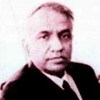 Macroscopic objects, as we see them all around us, are governed by a variety of forces, derived from a variety of approximations to a variety of physical theories. In contrast, the only elements in the construction of black holes are our basic concepts of space and time. They are, thus, almost by definition, the most perfect macroscopic objects there are in the universe.
Macroscopic objects, as we see them all around us, are governed by a variety of forces, derived from a variety of approximations to a variety of physical theories. In contrast, the only elements in the construction of black holes are our basic concepts of space and time. They are, thus, almost by definition, the most perfect macroscopic objects there are in the universe.
SUBRAHMANYAN CHANDRASEKHAR, 1910 TO 1995
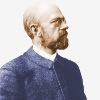 Physics is actually too hard for physicists.
Physics is actually too hard for physicists.
DAVID HILBERT, 1862 TO 1943
(MATHEMATICIAN)
(MATHEMATICIAN)
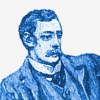 Physicists, being in no way different from the rest of the population, have short memories for what is inconvenient.
Physicists, being in no way different from the rest of the population, have short memories for what is inconvenient.
ANTHONY STANDEN, 1907 – 1993
 In its efforts to learn as much as possible about nature, modern physics has found that certain things can never be “known” with certainty. Much of our knowledge must always remain uncertain. The most we can know is in terms of probabilities.
In its efforts to learn as much as possible about nature, modern physics has found that certain things can never be “known” with certainty. Much of our knowledge must always remain uncertain. The most we can know is in terms of probabilities.
RICHARD FEYNMAN, 1918 TO 1988
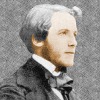 The chief philosophical value of physics is that it gives the mind something distinct to lay hold of, which, if you don’t, Nature at once tells you you are wrong.
The chief philosophical value of physics is that it gives the mind something distinct to lay hold of, which, if you don’t, Nature at once tells you you are wrong.
JAMES CLERK MAXWELL, 1831 TO 1879
 A cylinder of air reaching to the top of the atmosphere is of equal weight with a cylinder of water about 33 feet high.
A cylinder of air reaching to the top of the atmosphere is of equal weight with a cylinder of water about 33 feet high.
ISAAC NEWTON, 1642 TO 1727
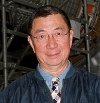 In reality, a theory in natural science cannot be without experimental foundations; physics, in particular, comes from experimental work.
In reality, a theory in natural science cannot be without experimental foundations; physics, in particular, comes from experimental work.
SAMUEL C. C. TING, B. 1936
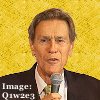 Benjamin Franklin performed a beautiful experiment using surfactants; on a pond at Clapham Common, he poured a small amount of oleic acid, a natural surfactant which tends to form a dense film at the water-air interface. He measured the volume required to cover all the pond. Knowing the area, he then knew the height of the film, something like three nanometers in our current units.
Benjamin Franklin performed a beautiful experiment using surfactants; on a pond at Clapham Common, he poured a small amount of oleic acid, a natural surfactant which tends to form a dense film at the water-air interface. He measured the volume required to cover all the pond. Knowing the area, he then knew the height of the film, something like three nanometers in our current units.
PIERRE-GILLES DE GENNES, 1932 TO 2007
 This most beautiful system of the sun, planets and comets could only proceed from the counsel and dominion of an intelligent and powerful Being. And if the fixed stars are the centres of other like systems, these, being formed by the like wise counsel, must be all subject to the dominion of One; especially since the light of the fixed stars is of the same nature with the light of the sun.
This most beautiful system of the sun, planets and comets could only proceed from the counsel and dominion of an intelligent and powerful Being. And if the fixed stars are the centres of other like systems, these, being formed by the like wise counsel, must be all subject to the dominion of One; especially since the light of the fixed stars is of the same nature with the light of the sun.
ISAAC NEWTON, 1642 TO 1727
 But though the professed aim of all scientific work is to unravel the secrets of nature, it has another effect, not less valuable, on the mind of the worker. It leaves him in possession of methods which nothing but scientific work could have led him to invent.
But though the professed aim of all scientific work is to unravel the secrets of nature, it has another effect, not less valuable, on the mind of the worker. It leaves him in possession of methods which nothing but scientific work could have led him to invent.
JAMES CLERK MAXWELL, 1831 TO 1879
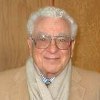 In our work, we are always between Scylla and Charybdis; we may fail to abstract enough, and miss important physics, or we may abstract too much and end up with fictitious objects in our models turning into real monsters that devour us.
In our work, we are always between Scylla and Charybdis; we may fail to abstract enough, and miss important physics, or we may abstract too much and end up with fictitious objects in our models turning into real monsters that devour us.
MURRAY GELL-MANN, B. 1929
 I am busy just now again on electro-magnetism, and I think I may have got hold of a good thing.
I am busy just now again on electro-magnetism, and I think I may have got hold of a good thing.
MICHAEL FARADAY, 1791 – 1867
No comments:
Post a Comment